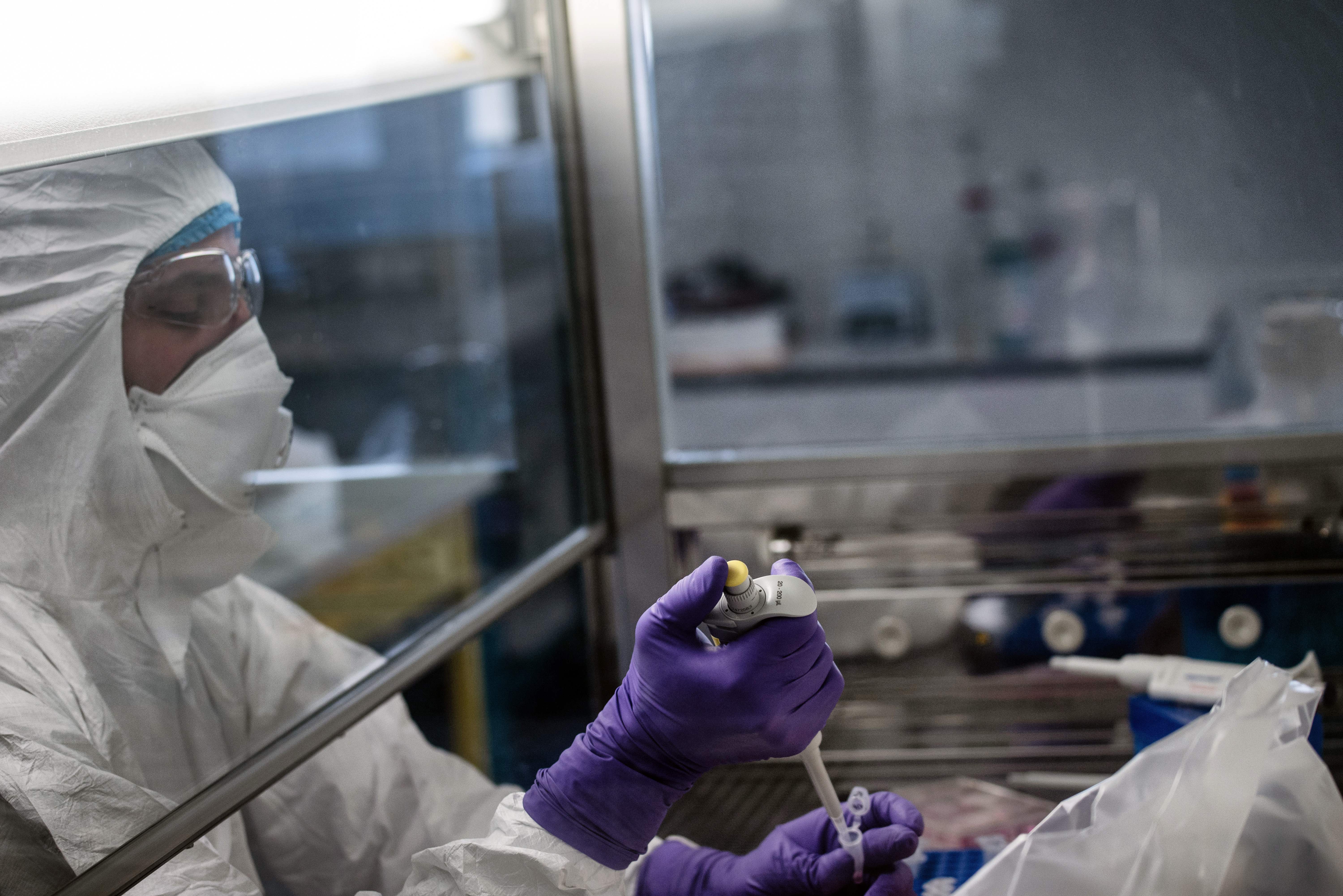While efforts to develop a coronavirus vaccine have accelerated, there are still safety concerns, according to the director-general of the International Vaccine Institute.
“We don’t know that a vaccine that’s developed in four months — or I guess 12 to 18 months, which is the current estimate — is really safe,” Jerome Kim, director-general of the International Vaccine Institute (IVI), told CNBC’s “Street Signs Asia” on Monday.
Typically, the process of developing vaccines takes five to 10 years, but Kim said there’s been “unprecedented speed” in the race for a COVID-19 vaccine as a result of global efforts to stem the pandemic and a “significant amount of funding” given to companies to get vaccines ready for testing. As a result, vaccines can now begin human trials in 4 months — instead of the typical five to 10 years — and that’s “really a remarkable thing,” he said.
His comments come after Inovio Pharmaceuticals pushed out Phase 1 of clinical human testing this week, making it the second potential COVID-19 vaccine to undergo human testing. The first human trial for coronavirus vaccine started in March, and was developed by Moderna and the National Institutes of Health, an agency within the Department of Health and Human Services.
Let’s work as quickly as we can … to try and test those vaccines, to get proof that the vaccine works, hopefully within 12 to 18 months.
Jerome Kim
director-general at International Vaccine Institute
Currently, more than 70 countries are participating in the World Health Organization’s trial to accelerate research on effective treatments, and around 20 organizations are in the race to develop a vaccine, according to WHO.
Kim warned that success is not necessarily guaranteed, as vaccine development is characterized by a high failure rate of “often 93%” between animal studies first done and the actual registration of the product.
Interim measures
In the meantime, one of the most important things would be to recognize dependence of age — that older people are more likely to have very severe consequences or even death once infected, and not much can be done about that except to protect the elderly, according to Kim.
He said the other thing to recognize is that 98% of those infected get better — and some people do get better on their own, despite others who have to be hospitalized or put on ventilators.
A scientist is at work in the VirPath university laboratory, classified as “P3” level of safety, on February 5, 2020 as they try to find an effective treatment against COVID-19.
JEFF PACHOUD | AFP via Getty Images
Moving ahead, part of the measures would be “to maintain the testing, treating, isolating, and social distancing that we’ve been doing all along — prevent infection,” he added.
“Let’s work as quickly as we can — as we are doing at IVI and others are doing — to try and test those vaccines, to get proof that the vaccine works, hopefully within 12 to 18 months,” Kim said.
As the race to develop a vaccine intensifies, several drugs — from Fujifilm’s Avigan to some controversial malaria drugs — have been claimed by some as being helpful in treating COVID-19.
President Donald Trump has repeatedly touted hydroxychloroquine — a drug used to treat malaria and autoimmune disease since the 1950s — as a potential cure and “game changer” for infected patients despite medical experts warning of the drug’s potential side effects.
However, there is still much we don’t know about hydroxychloroquine as treatment, Andy Slavitt, former acting administrator at the Centers for Medicare and Medicaid Services, told CNBC’s “Squawk Box Asia” on Tuesday.
“Sometimes the best answer is we don’t know, and if you listen to Dr. (Anthony) Fauci, who is the scientist here in our country — the U.S — who is really supposed to be guiding the way, he says we don’t know yet,” Slavitt said referring to the director of the National Institute of Allergy and Infectious Diseases, who is also the White House health advisor.
“I think we will be able to test things rapidly — there are potentially good drugs around the corner, that (hydroxychloroquine) may or may not be one of them, but let’s let the scientists guide us here because … the harms here can be quite consequential,” he added.
